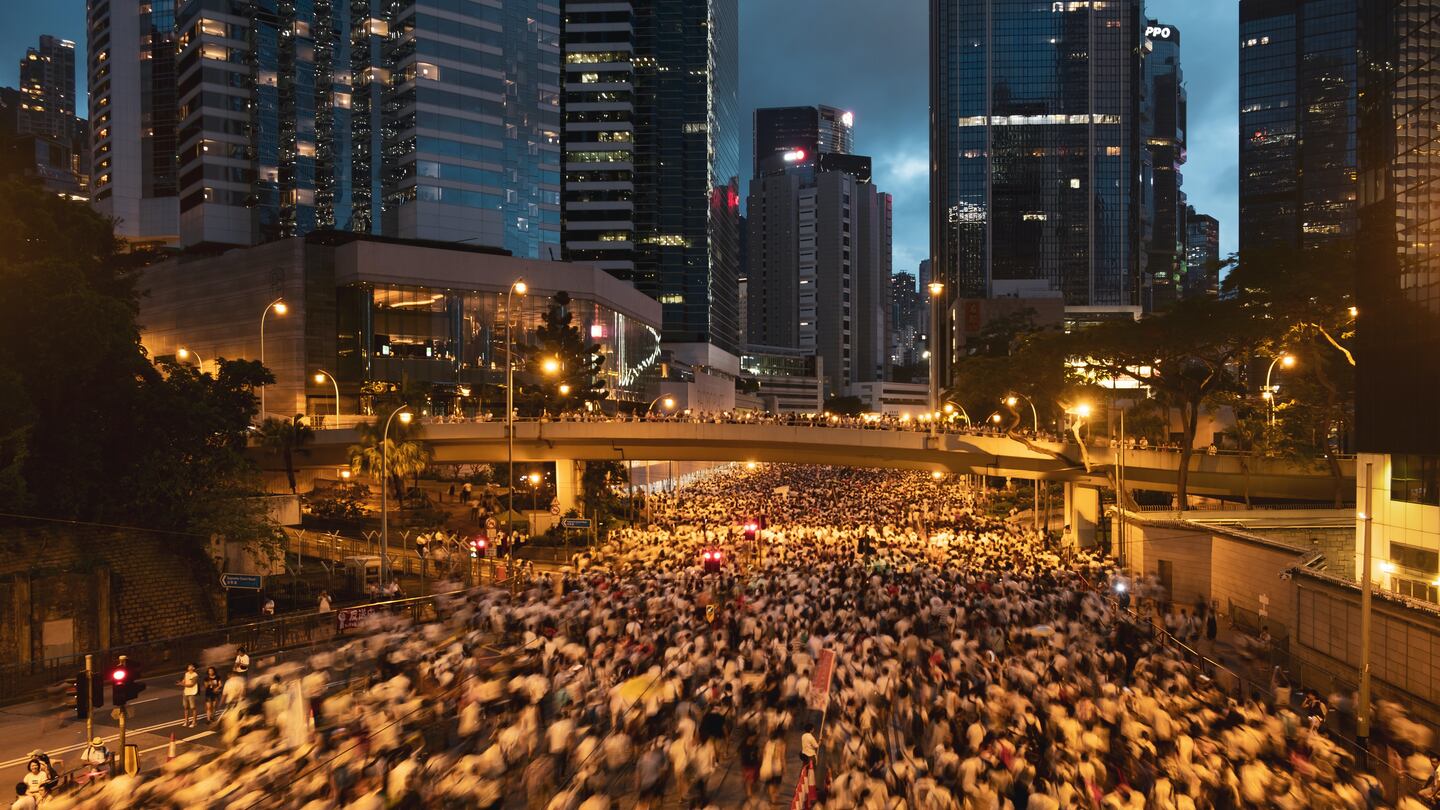
The Business of Fashion
Agenda-setting intelligence, analysis and advice for the global fashion community.

Agenda-setting intelligence, analysis and advice for the global fashion community.

HONG KONG, China — Hong Kong's August retail sales were the worst on record, the government said on Wednesday, as escalating anti-government protests that have gripped the Chinese-ruled city for nearly four months scared off tourists and battered spending.
Retail sales in August fell 23 percent from a year earlier, government data showed, worse than a 21.48 percent fall in September 1998, according to Refinitiv data, as violent clashes spread across shopping districts and took a heavy toll on malls.
Cat-and-mouse clashes on Tuesday spread from the shopping district of Causeway Bay to the Admiralty area and then on to the New Territories, with police firing tear gas and water cannon at petrol bomb-throwing activists.
Protesters were out again on Wednesday but there were no reports of serious trouble.
ADVERTISEMENT
Market analysts say the outlook is overshadowed by the protests and a weak Chinese yuan that translates into lower spending.
Retail sales fell to HK$29.4 billion ($3.75 billion) in August, a seventh consecutive month of decline. July's drop was a revised 11.5 percent. In volume terms, retail sales in August fell 25.3 percent, compared with a revised 13.1 percent drop in July.
For the first eight months of 2019, retail sales fell 6 percent in value from a year earlier and 6.9 percent in volume terms.
"Retail sales will likely remain in the doldrums in the near term, as the worsened economic outlook and local protests involving violence continue to weigh on consumer sentiment and inbound tourism," a government spokesman said.
The government will monitor the implications for the labor market and the economy, he added.
Retail sales will likely remain in the doldrums in the near term.
Hong Kong is facing its first recession in a decade, with the government recently cutting its full-year 2019 growth forecast to 0 to 1 percent, down from 2 percent to 3 percent previously.
Hong Kong's finance minister had said earlier that anti-government protests were taking a heavy toll on the city's tourism and retail sectors, while hotels in some locations were only half-full with room rates plunging 40 to 70 percent.
August tourist arrivals fell 39.1 percent on year to 3.59 million, according to the Hong Kong Tourism Board, the biggest decline since May 2003 when an outbreak of severe acute respiratory syndrome (SARS) hit. They were down 30.9 percent from July.
ADVERTISEMENT
The number of mainland visitors fell 42.3 percent in August, accounting for 77.5 percent of the total.
Many businesses have felt the pain, especially some of the city's large luxury retailers who rely heavily on mainland Chinese spending, as the protests show no sign of easing.
Sales of jewellery, watches, clocks and valuable gifts plunged 47.4 percent on-year in August, data showed, after a revised 24.3 percent drop in July.
Medicines and cosmetics fell 30 percent in August, compared with revised 16.5 percent fall in July. Department store sales dropped 29.9 percent in August, against a 10.4 percent fall in July.
Hong Kong-based skin care and cosmetics chain operator Sa Sa International posted 32 percent year on year drop in its sales in Hong Kong and Macau in August and expected its performance in September to remain "very weak."
"Uncertainties related to the social unrest in Hong Kong since June 2019 and the trade dispute is leaving no room for optimism on economic growth in 2019," Bess Tsin, chairman of casual wear group Bossini, said in an earnings statement.
The Hong Kong Retail Management Association had earlier urged landlords to halve rents for six months and expected some retailers may have to sack staff or even shut down.
By Donny Kwok and Twinnie Siu, additional reporting by Noah Sin; editors: Anne Marie Roantree, Robert Birsel.
With consumers tightening their belts in China, the battle between global fast fashion brands and local high street giants has intensified.
Investors are bracing for a steep slowdown in luxury sales when luxury companies report their first quarter results, reflecting lacklustre Chinese demand.
The French beauty giant’s two latest deals are part of a wider M&A push by global players to capture a larger slice of the China market, targeting buzzy high-end brands that offer products with distinctive Chinese elements.
Post-Covid spend by US tourists in Europe has surged past 2019 levels. Chinese travellers, by contrast, have largely favoured domestic and regional destinations like Hong Kong, Singapore and Japan.